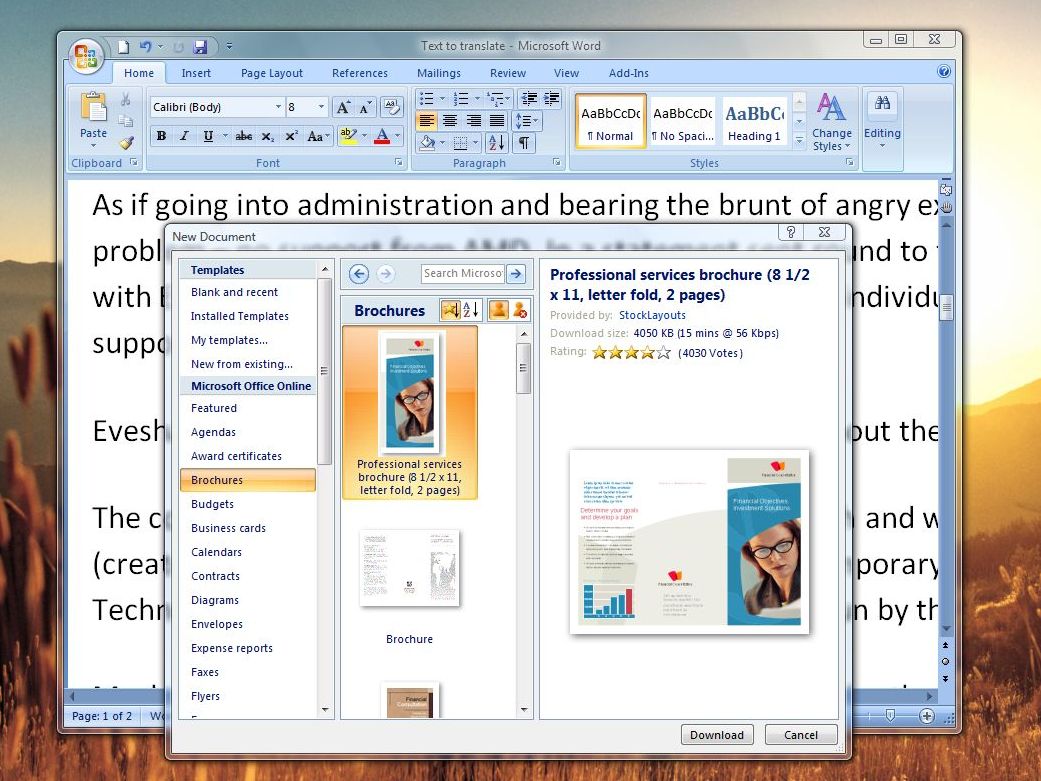DAISY, DAISY, give me your answer do
Translator for Word helps the visually impaired

Microsoft is to release a new tool for Word that will enable documents to be automatically translated into DAISY XML - the globally accepted standard for digital talking books. The plug-in translates data from the Open XML standard used in Office 2007.
In order to locate the data that interests us, we humans perform a complex calculus of considerations for which we rely on visual cues: like the table of contents, formatting, indentations, the index and the glossary to guide us as our eyes move across the pages in search of the key information.
There are around 180 million blind or visually impaired people worldwide. For them, digesting information is difficult since, when translating to audio, text is simply put into a lengthy diatribe of undifferentiated speech with no heed of formatting such as indentations.
The new Microsoft Word plug-in will ensure that data is translated into speech in the correct order taking notice of the different formatting conventions.
Understanding formatted text
The free plugin will be available from "early next year." By the way, DAISY stands for Digital Access Information System. The DAISY Consortium, a coalition of talking-book libraries and non-profit organizations, was formed in 1996 with the intention of moving material for the visually impaired into the digital age.
DAISY material can be played on dedicated devices or on PCs. The system works by creating a digital audio file narrating the document's content that maps to a text file with the XML structure of the text marked up.
"When you don't see print, you lose more than the ability to read words," explains Jim Marks, director of services for students with disabilities at the University of Montana. Jim went blind as an undergraduate in the early 1980s. "You lose the ability to see the page, jump around in the text and be drawn to bolded or italicized information," he says.
Sign up for breaking news, reviews, opinion, top tech deals, and more.
'Stream of consciousness'
"When I switched from the ability to read print to audio, it was like a stream of consciousness," Marks added. "Trying to find the page number on an audio cassette was a miserable experience."
In an increasingly information-driven society, the lack of digestible information is a problem for blind or visually impaired students says Marks. "It's not just access to information that gives students equal footing, but the ability to manipulate that information. DAISY enhances the reading experience to most closely approximate how sighted people read print."
"I believe this project represents a breakthrough for me both personally and professionally," said Penny Hartin head of World Blind Union. "The ability to make highly functional, accessible content available on desktops everywhere in the world is critical, and this [translator] is a remarkable move toward that goal."
Dan (Twitter, Google+) is TechRadar's Former Deputy Editor and is now in charge at our sister site T3.com. Covering all things computing, internet and mobile he's a seasoned regular at major tech shows such as CES, IFA and Mobile World Congress. Dan has also been a tech expert for many outlets including BBC Radio 4, 5Live and the World Service, The Sun and ITV News.